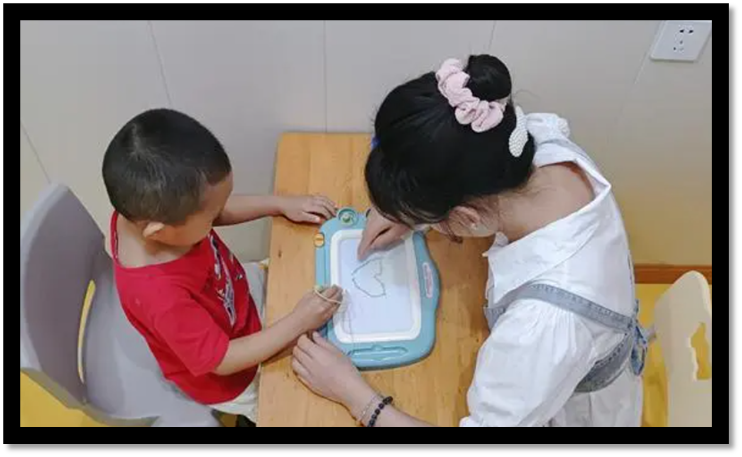From 02 to the present, the number of sensitive children in Singapore has gradually increased. Experiments have shown that children in sensitive periods learn Chinese can help alleviate their symptoms.
The sensitive period is a phenomenon related to the life of children and is suitable for a certain age, so what is the sensitive period?
Through meticulous, patient and systematic observation of children’s natural behavior, it is pointed out that children have a special ability to feel at each specific time, which prompts him to be sensitive to certain things in the environment, to pay attention to relevant things, to be patient, and to ignore other things.

This is called the sensitive period. When the child successfully passes a sensitive period, the child’s mental level rises from one level to another. For ordinary children, language development is a natural thing, and the sensitive period of language development of ordinary children is 0-6 years old.
When babies start crying and staring at the mouth shape of adults, their language sensitivity begins, especially at 18-30 months, they will usher in a verbal burst.
During this period, you can learn 200-300 words, and the parts of speech mastered are quickly enriched in this time period, such as nouns, verbs, adjectives, and words can be synthesized into phrases or sentences in 24-48 months.
But the most common early symptoms in children with autism spectrum disorder include delayed language development, lack of language, or aphasia.
It is difficult for them to learn vocabulary and language structure, and in the process, they will have problems such as inability to remember vocabulary, difficulty distinguishing vocabulary, and difficulty combining sentences.
Compared with ordinary children, autistic children have later organ and mental development than ordinary children, and the most common early symptoms of autism include delayed language development, no language or aphasia.
It can be seen from here that the sensitive period of autistic children comes later than ordinary children; Secondly, there is low intensity, and the performance in the sensitive period is not as obvious as that of ordinary children.
In the process of mastering vocabulary and sentence patterns, because the core obstacle of autistic children has thinking disorders, they will master less vocabulary than ordinary children, and cannot be used flexibly, and in the process of learning sentence patterns, there will be problems such as difficulty in combining sentences, stiff and incoherent sentences in combination.
Chengcheng is a 3-year-old and 5-month-old autistic child, he had no language before 2 years and 8 months, and after 3 months of intervention, Chengcheng was able to express simple monophony, after which Chengcheng became particularly fond of imitating adult pronunciation.
At the age of 3, Chengcheng has been able to master more than 50 nouns, such as watermelon, cat, crow, car, etc., and at the age of 3 years and 2 months, he can name sports characters, such as mother, grandfather, teacher, grandmother, etc.
Since learning short sentences, Chengcheng will eagerly pull the adult to say when he sees anything, and after speaking, he will look at the adult with expectant eyes, and when the adult praises and repeats Chengcheng’s words, Chengcheng will excitedly repeat what he just said. This is the importance of children in sensitive periods learn Chinese.

The language sensitivity period of autistic children is not as obvious as that of ordinary children, so this requires the interventionist and the family to observe the subtle changes of the child, and when it is found that the child begins to occur, and is very willing to imitate adult speech.
We must understand that the child’s language sensitivity period has arrived. In this process we need to pay attention to:
Timely response and strengthening. In the early stages of learning, children will have temptation and lack of confidence, such as low voices and dare not look directly at the person in conversation.
At this time, we must encourage the child in time: “What you said is amazing! You said it very clearly! You’re amazing, and you’ve learned a new vocabulary! ”
Correct errors in time, in the process of learning language, children will use mistakes and express errors, such as the teacher is playing with the child to lose the ball, but the child says: “The ball is dropped”, the mother is cooking, but the mother is eating.
So after the child expresses the error, be sure to correct the error immediately to avoid the same mistake in the future.
Timely assistance. When children express more complex sentences, there will be stuttering or unclear expression, for example, if the child wants his mother to help get cookies, he can only anxiously express “Mom, eat cookies”, which is to assist the child to complete the sentence “Mommy I want to eat cookies”.
The arrival of the language sensitive period is one stage to another stage for the development of autistic children, and it is a most important link in their development process.
The sensitive period is also short-lived, not permanent, it lasts only for a short period of time, and as long as it disappears, it can never be reproduced. I hope that all parents can seize this stage of children in sensitive periods learn Chinese and build hope for their future growth.
